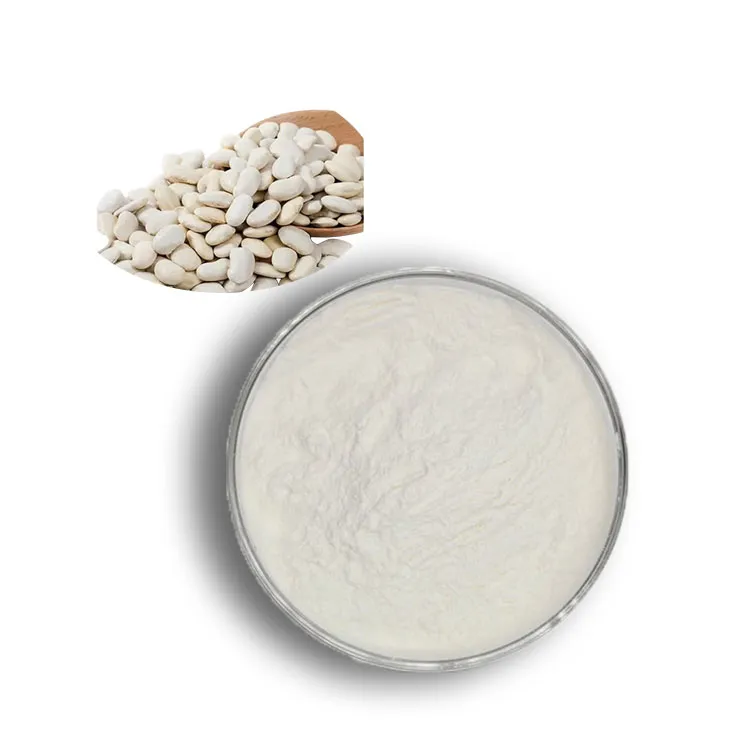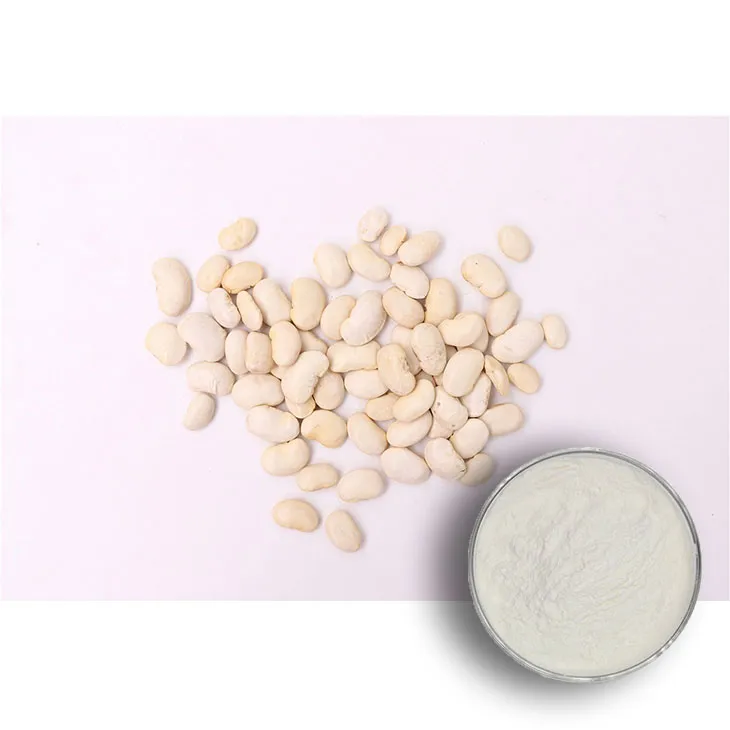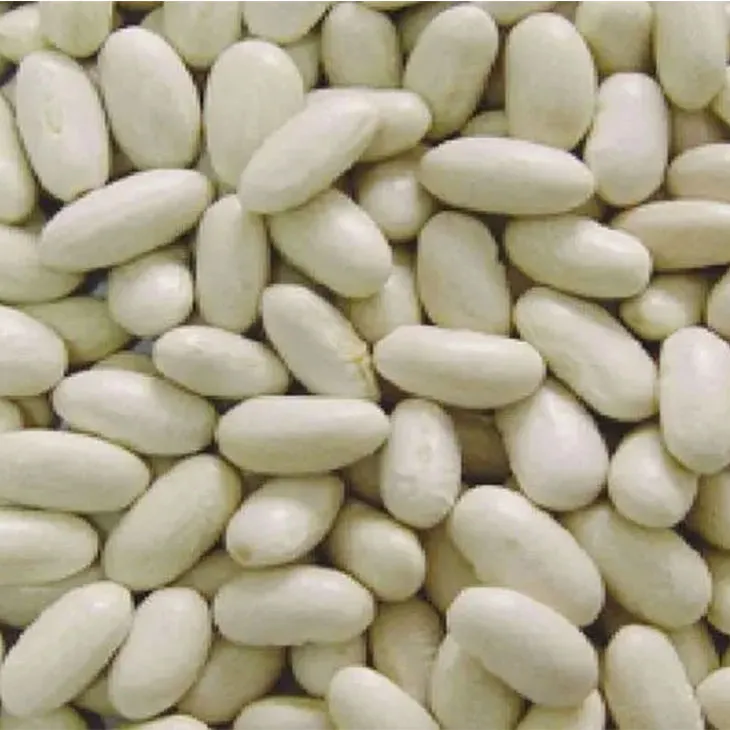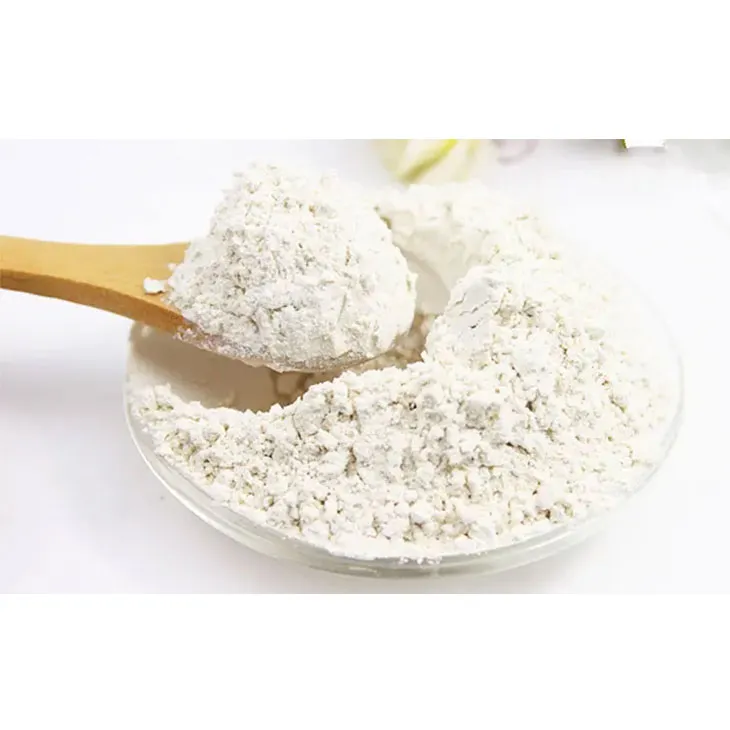- 0086-571-85302990
- sales@greenskybio.com
Kidney bean extract: Uses, Advantages, and Manufacturing Processes.
2024-11-12

1. Introduction
Kidney beans, a common and nutritious legume, have been a staple in many diets around the world. Kidney Bean Extract, derived from these beans, has gained significant attention in recent years. It holds great potential in various fields, including food supplements and pharmaceuticals. This article will explore the uses, benefits, and production process of Kidney Bean Extract in detail.

2. Uses of Kidney Bean Extract
2.1 In Food Supplements
The use of kidney bean extract in the food supplement sector is quite prominent. One of its main applications is in products designed to enhance metabolism. In modern lifestyles, where sedentary habits and poor dietary choices are common, a slow metabolism can lead to various health issues such as weight gain and fatigue. Kidney bean extract, with its unique composition, can potentially boost the body's metabolic rate. This means that the body is able to convert food into energy more efficiently, which can contribute to better overall health and potentially aid in weight management.
2.2 In the Pharmaceutical Field
In the pharmaceutical area, kidney bean extract is currently the subject of numerous studies. Scientists are exploring its possible role in treating certain metabolic disorders. Metabolic disorders are complex conditions that can disrupt the normal functioning of the body's metabolic processes. For example, disorders related to blood sugar regulation or lipid metabolism. Kidney bean extract may contain compounds that can interact with the body's physiological mechanisms to help correct these imbalances. However, more research is needed to fully understand and confirm its efficacy in treating such disorders.

3. Advantages of Kidney Bean Extract
3.1 Compatibility with the Human Body
One of the most notable advantages of kidney bean extract is its compatibility with the human body. Since it is derived from kidney beans, which are a common food source, the human body is likely to respond well to it. The body is already accustomed to processing the components present in kidney beans to some extent. This familiarity can lead to fewer adverse reactions compared to synthetic or foreign substances. When consumed in appropriate amounts, kidney bean extract can be integrated into the body's normal physiological functions without causing significant disruptions.
3.2 Rich in Bioactive Compounds
Kidney bean extract is rich in bioactive compounds that offer a variety of health - promoting effects. These bioactive compounds include proteins, fibers, vitamins, and minerals. Proteins are essential for building and repairing tissues in the body. Fibers play a crucial role in digestive health, helping to regulate bowel movements and maintain a healthy gut microbiota. Vitamins and minerals are involved in numerous physiological processes, such as maintaining strong bones (calcium and vitamin D), supporting the immune system (vitamin C), and ensuring proper nerve function (magnesium).
Moreover, kidney bean extract may also contain phytochemicals. Phytochemicals are non - nutritive plant compounds that have been shown to have antioxidant, anti - inflammatory, and other beneficial properties. For example, some phytochemicals in kidney bean extract may help to reduce oxidative stress in the body. Oxidative stress is associated with the development of chronic diseases such as heart disease, cancer, and neurodegenerative disorders. By reducing oxidative stress, kidney bean extract may contribute to the prevention of these diseases.

4. Manufacturing Process of Kidney Bean Extract
4.1 Sourcing of Raw Kidney Beans
The first step in the manufacturing process of kidney bean extract is the sourcing of raw kidney beans. High - quality kidney beans are carefully selected. The source of the beans is crucial as it can affect the quality and properties of the final extract. Beans are typically sourced from reliable farmers or suppliers who follow good agricultural practices. This ensures that the beans are free from contaminants such as pesticides, heavy metals, and mycotoxins. Additionally, the variety of kidney bean can also influence the composition of the extract. Different varieties may have slightly different nutrient profiles and levels of bioactive compounds.
4.2 Washing and Preparation
Once the kidney beans are sourced, they are then washed and prepared for extraction. Washing is an important step to remove any dirt, debris, or surface contaminants from the beans. After washing, the beans may be sorted to remove any damaged or defective ones. This helps to ensure that only high - quality beans are used for extraction. Depending on the extraction method, the beans may need to be further processed. For example, they may be dried, ground into a powder, or soaked in a particular solution to make the extraction process more effective.
4.3 Extraction Process
The extraction process is a crucial step in obtaining kidney bean extract. Different solvents can be used depending on the desired components. For example, water is a commonly used solvent as it is safe and can extract many water - soluble compounds from the kidney beans. However, organic solvents such as ethanol may also be used, especially for extracting lipid - soluble components or certain bioactive compounds. The choice of solvent also affects the purity and potency of the final extract.
During extraction, the kidney bean material is mixed with the solvent under specific conditions. These conditions may include temperature, pressure, and agitation. For example, a higher temperature may increase the solubility of certain compounds, but it also needs to be carefully controlled to avoid damaging the bioactive components. The extraction process may take a certain amount of time to ensure that a sufficient amount of the desired components are transferred from the bean material into the solvent.
4.4 Refinement and Purification
After extraction, the extract is refined through filtration and other purification methods to remove impurities and obtain a pure and potent kidney bean extract. Filtration is a common method used to separate the extract from any solid particles or debris. Different types of filters can be used, depending on the size of the particles to be removed. For example, a coarse filter may be used first to remove larger particles, followed by a fine filter to remove smaller impurities.
In addition to filtration, other purification methods may also be employed. These can include chromatography, which can separate different components in the extract based on their chemical properties. Centrifugation can also be used to separate components based on their density. Through these refinement and purification processes, the final kidney bean extract can be obtained with a high level of purity and potency, ready for use in food supplements, pharmaceuticals, or other applications.

5. Conclusion
Kidney bean extract has a wide range of uses and numerous advantages. Its applications in food supplements and potential in the pharmaceutical field make it an interesting and valuable substance. The manufacturing process, which involves careful sourcing, preparation, extraction, and purification, ensures that a high - quality extract can be obtained. However, further research is still needed to fully explore its potential benefits and to ensure its safety and efficacy in different applications. As our understanding of kidney bean extract continues to grow, it is likely to play an increasingly important role in promoting human health.
FAQ:
What are the main uses of kidney bean extract in the food supplement sector?
Kidney bean extract in the food supplement sector is mainly used for enhancing metabolism. It can be added to relevant products to potentially boost the body's metabolic processes.
What potential role does kidney bean extract play in treating metabolic disorders?
In the pharmaceutical area, kidney bean extract is currently being studied for its potential role in treating certain metabolic disorders. However, as of now, more research is needed to fully understand and confirm its exact effectiveness in this regard.
Why is kidney bean extract considered compatible with the human body?
Kidney bean extract is considered compatible with the human body because it is derived from kidney beans, which are a common food source. The body is likely to respond well to substances that are sourced from familiar food items.
What bioactive compounds are present in kidney bean extract?
Kidney bean extract is rich in various bioactive compounds. Some of these may include proteins, peptides, and certain phytochemicals. These bioactive compounds are responsible for offering the various health - promoting effects associated with kidney bean extract.
What solvents can be used in the extraction process of kidney bean extract?
Different solvents can be used in the extraction process of kidney bean extract depending on the desired components. Commonly used solvents may include water, ethanol, or a combination of both. However, the choice of solvent is crucial as it can affect the quality and composition of the final extract.
Related literature
- The Bioactive Compounds in Kidney Bean Extract: A Comprehensive Review"
- "Kidney Bean Extract: Manufacturing and Quality Control"
- "Metabolic Benefits of Kidney Bean Extract: Current Research and Future Perspectives"
- ▶ Hesperidin
- ▶ citrus bioflavonoids
- ▶ plant extract
- ▶ lycopene
- ▶ Diosmin
- ▶ Grape seed extract
- ▶ Sea buckthorn Juice Powder
- ▶ Beetroot powder
- ▶ Hops Extract
- ▶ Artichoke Extract
- ▶ Reishi mushroom extract
- ▶ Astaxanthin
- ▶ Green Tea Extract
- ▶ Curcumin Extract
- ▶ Horse Chestnut Extract
- ▶ Other Problems
- ▶ Boswellia Serrata Extract
- ▶ Resveratrol Extract
- ▶ Marigold Extract
- ▶ Grape Leaf Extract
- ▶ blog3
- ▶ blog4
- ▶ blog5
-
Organic Tongkat Ali extract powder factory.
2024-11-12
-
How to make powder with ashwagandha extract.
2024-11-12
-
Rosehip extract manufacturers from China.
2024-11-12
-
The best cat's claw extract in nature.
2024-11-12
-
Chinese Dandelion Leaf Extract Suppliers.
2024-11-12
-
Camu Camu Extract
2024-11-12
-
White Peony Extract
2024-11-12
-
Saponin Extract
2024-11-12
-
Curcumin
2024-11-12
-
Hawthorn powder
2024-11-12
-
Cactus Extract
2024-11-12
-
Green coffee bean Extract
2024-11-12
-
Rosemary extract
2024-11-12
-
Alfalfa Meal
2024-11-12
-
Wheat Germ Extract
2024-11-12





















